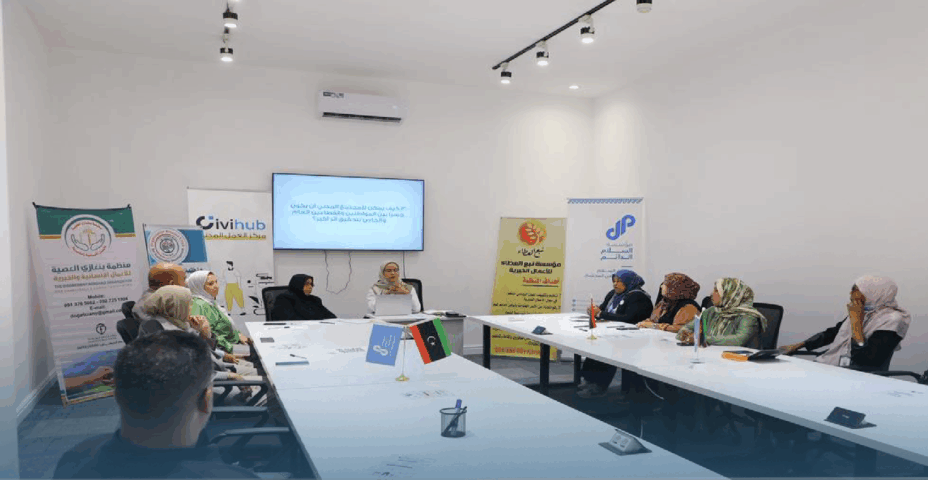Benghazi – The Vision Center for Civil Work hosted a dialogue session titled “Social Responsibility and its Role in Supporting Civil Society Organizations,” with broad participation from activists, civil society organizations, and those interested in public affairs, to discuss the absence of legislation regulating social responsibility and ways to enhance its role in supporting community work within Libya.
The session, organized by the Permanent Peace Organization, the Nabaa Al-Ataa Organization, the Benghazi the Resilient Organization, and the Nasayim Libya Organization for Sustainable Development, featured an open discussion on the importance of a clear legal framework to regulate social responsibility and ensure an effective partnership between the public and private sectors in supporting developmental and social initiatives.
The participants in the session, moderated by legal expert Dr. Ibtisama Bheih, affirmed that the absence of legislation on this matter has weakened the ability of civil society organizations to perform their role, despite the growing need for community initiatives that support stability and development in Libya.
Mohamed al-Silini al-Fitouri, Chairman of the Board of the International Organization for the Protection of Children and Persons with Disabilities, told the Libyan News Agency that the meeting was an opportunity to exchange experiences and review the best international practices in the field of social responsibility, stressing the importance of a genuine partnership between the state and non-governmental institutions to achieve sustainable development, support families in need, and fund training projects.
For her part, Ms. Khadija Al-Fazzani, President of the Benghazi the Resilient Organization for Humanitarian Work, stressed that the initiative aims to establish a legislative framework for social responsibility, similar to developed countries, which would bring about a qualitative leap in supporting civil society.
Ms. Salma Salem Al-Baraki, Chairwoman of the Board of the Nasayim Libya Organization for Sustainable Development and Vice President of the Benghazi Women’s Union, also affirmed that the session contributed to unifying civil efforts and strengthening the spirit of partnership, calling for the recommendations to be turned into practical steps supervised by the Civil Society Commission.
The meeting concluded with a broad consensus on the need to include social responsibility in national legislation and to launch an extensive dialogue to establish practical mechanisms for funding community work, in a way that solidifies the concept of joint development and social responsibility within Libya.
